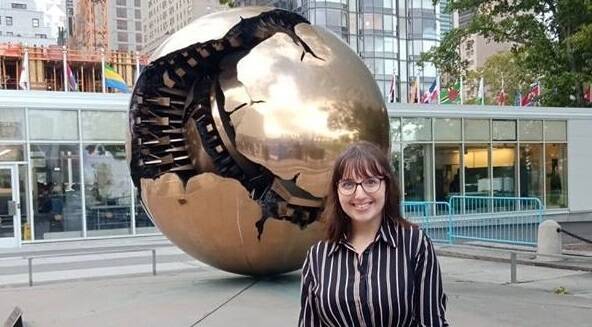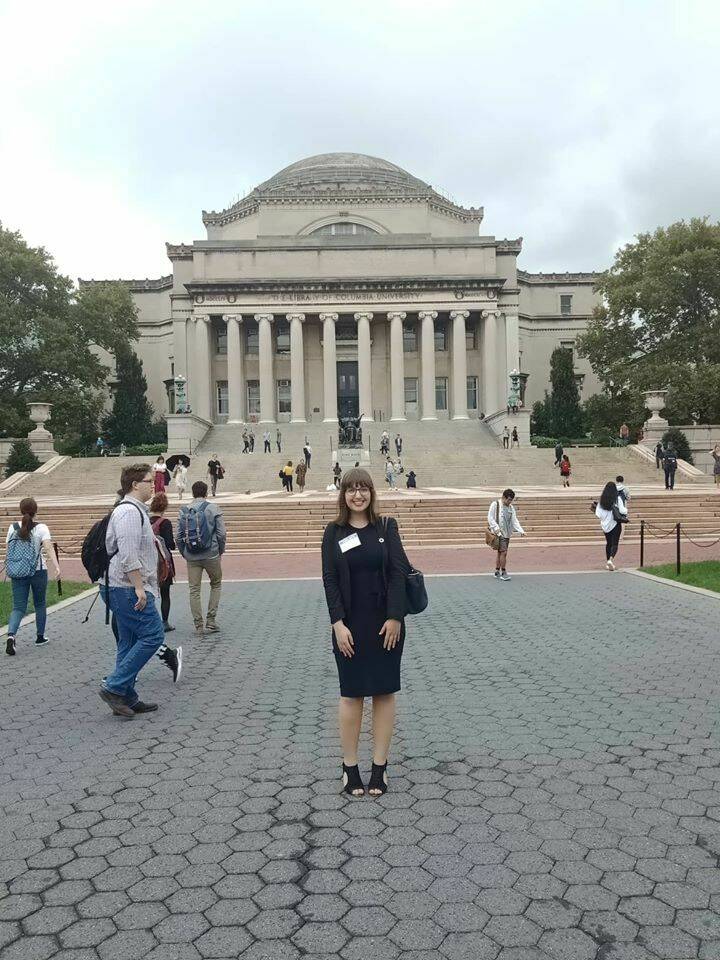Contemplating climate change
UNESCO Aotearoa Youth Leader Injy Johnstone represented the National Commission as part of a panel on climate change at the Ministry of Foreign Affairs and Trade’s NGO Policy Forum in October 2018. Alongside Climate Ambassador Jo Tyndall and Dr Siautu Alefaio-Tugia from Massey University, Injy discussed how to collectively go about ‘flipping the switch from mitigation to adaptation’. She shares this experience, as well as reflections on her attendance at the 73rd session of the UN General Assembly as part of her studies.
NGO Policy Forum
‘Flipping the switch from mitigation to adaptation’ was the focus of the panel I was part of MFAT’s NGO Policy Forum. While all the panellists agreed that mitigation at present was not happening, we each had differing thoughts as to what might get us there. In particular, I felt that too often adaptation implies the need for long-term planning. While this may in part be required, I said that I think we need to recognise that adaptation can occur today by us thinking through future scenarios and reverse engineering the infrastructure and resiliency solutions we need to meet the challenges, whether it be extreme weather or sea level rise. When people think through what their community might look like in 2050, due to the consequences of climate change as part of an adaption exercise, they are also far more likely to then want to mitigate by taking the bus or bike instead of their car, for instance.
The MFAT session ended with what hopeful solutions there are for the future, of which there are many. Highlights ranged from New Zealand’s newest form of climate legislation, the Zero Carbon Act, through to Climate Challenge. I feel there has been a tangible sea-change of positivity, and it’s now our opportunity to capitalise on this in Aotearoa by employing the truism of thinking (mitigating) global but acting (adapting) local.

73rd session of the UN General Assembly
The very thing that created the United Nations was the goal of peace and what binds it together is the hope that it makes the world a better place. It is no surprise that this is closely connected to UNESCO’s mission and I was proud of New Zealand and our Prime Minister demonstrating the power of international collaboration throughout the week in New York at the 73rd session of the UN General Assembly.
My week, as with the many other delegates that flooded the city, went by in a flurry of meetings and events. While I was primarily there to present my research on legally enforcing the Paris Agreement at the International Conference on Sustainable Development, the opportunity to further explore my focus on climate change arose from my work with the United Nations Sustainable Development Solutions Network at the United Nations and other side events hosted in the city.
I learnt a huge amount from these experiences and further found how I can best make my future contribution in this space. I met the Filipino Lawyers who are suing the Carbon Majors over the damaged faced by their people in Typhoon Haiyan, saw the many advances in Climate Change and International Investment Litigation there has been over the past year, and heard Prime Ministers discuss sustainable development through a poverty and food production lens while at the United Nations. I will combine all this in my next research paper which seeks to analyse the interconnection between international trade law, food production and climate law leadership.
Despite these learnings, I was also acutely aware of the voices that weren’t part of these discussions. For example, having dialogue about climate change or youth leadership on sustainable development without the presence of the Small Island Developing States is a real missed opportunity. Similarly, the voices of otherwise disenfranchised people are also a rarity at the United Nations, whilst the already privileged have their voices amplified. New Zealand showed leadership in this space, when Robert Martin MNZM became the first person ever with an intellectual disability to chair a session at the United Nations during the 73rd Session.

